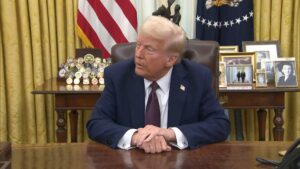Indonesian doctors on social media: fighting health myths, hoaxes, stigma
JAKARTA, Indonesia (MNTV) — Indonesian doctors are stepping beyond the clinic and entering the digital battlefield to check false claims, debunk myths, and reduce stigma surrounding critical health issues, according to Kompasiana website.
From miracle cures for COVID-19 to dangerous anti-vaccine propaganda, health misinformation is a serious problem in Indonesia’s digital landscape.
The study, “The Role of Indonesian Doctors as Content Creators in Fighting Health Hoaxes, Myths, and Stigma on Social Media”, highlights how medical professionals are leveraging social platforms to improve public health awareness in Indonesia.
According to the research, conducted by Anjelia, Mulyana, and Suminar, health myths and hoaxes exploit fear, uncertainty, and the appeal of quick fixes, leading to widespread confusion among the public.
This misinformation can erode trust in science, discourage people from seeking proper treatment, and even contribute to public health crises, such as outbreaks of preventable diseases like measles or polio.
The study highlights that one of the reasons misinformation spreads so easily is the rise of social media platforms where unverified claims can be shared instantly with thousands—if not millions—of people. Unfortunately, many users lack the tools or knowledge to differentiate between credible information and hoaxes, making them vulnerable to false health narratives.
Recognizing the dangers of unchecked misinformation, some Indonesian doctors have taken to social media to set the record straight. Platforms like Instagram, TikTok, and YouTube have become modern tools for health education, with doctors creatively engaging with the public.
These doctor-content creators are not only sharing their medical expertise but also building trust by interacting directly with their followers, answering questions, and participating in online discussions.
The researchers found that those doctors successfully reach wide audiences who use engaging and relatable content formats. By breaking down misinformation with scientific facts, they’re empowering the public to make informed health decisions.
The researchers say the doctor-influencers simplify medical jargon so that people can grasp the key message without feeling overwhelmed by technical terms.
They use real-life examples to illustrate the dangers of misinformation and the benefits of following evidence-based health advice.
They leverage short videos, infographics, memes, and Q&A sessions to keep viewers hooked while delivering important health information.










